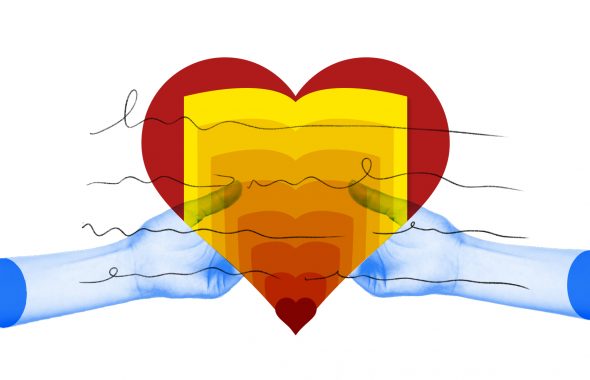What do you do when you want to say “goodbye” to something (or someone), but don’t really feel the good part of that sentiment?
Whether you’re late to a meeting and stuck on the phone, or just nodding your head in mock agreement as someone prattles on endlessly (with no clue they lost you 10 minutes ago), we’d like to offer you advice.
It’s true, without being outright rude, these tricky goodbyes can be tough to achieve. Unfortunately, badbye isn’t a real word yet (to learn more about how to make that happen, check this article).
But, that’s not going to stop us from exploring the most surprisingly negative farewells you’ve probably heard and offer our own … less melodramatic alternatives.
Classic goodbyes that sting
Bye, Felicia
This internet-famous farewell comes from the 1995 film Friday. In the scene, the two main characters flippantly dismiss another character, named Felisha, whom they consider irritating and unimportant. It’s shorthand for “You’re not worth the time or energy it takes to deal with you. Just go away.”
Likewise in real life, this phrase tends to carry the implication that whomever you’re saying it to is someone you consider irritating and unimportant as well.
And, as it became more popular, it also became whitewashed and the spelling changed from “Felisha” to “Felicia.” Either way it’s spelled, the very act of using the name Felicia in place of the person’s actual name shows you don’t even have the time to address them correctly. Burn.
Adieu
While it may sound pretty benign, the French adieu literally translates as “to god” in Latin. This means it has a sense of finality, like “I won’t see you again until after we’re both dead. Goodbye forever.” Not so charmingly continental now, is it?
So, if you want a subtle, under-the-radar way of saying, “I’d rather not see you again until I’m dead in the grave,” consider adieu. People have been using it since the 14th century, but that doesn’t mean it’s the best choice for a respectful compassionate way out of a conversation.
Don’t call us, we’ll call you
If you hear this at the end of an interview, your chances are … not great. The key phrase here is don’t call. It’s a sneaky way of saying, “We don’t want to hear from you, or have contact with you again.” Ouch.
Sometimes, it’s even more vague than that. We’ll be in touch is a variant of this that sounds super promising, but really means nothing.
Of course, it’s not always a job-interview situation. Bad date you want to let down gently? I’ll text you … (don’t text me).
I’m out
I’m out is a curt way of bouncing out of a situation without much explanation … or many words for that matter. Among friends, this one may not sting too bad, but when said to casual acquaintances, family, or even coworkers it’s a bit too brief to warrant usage.
And … don’t even get us started on this version of the phrase. You definitely shouldn’t use this one, friends or family alike, if you’re trying to put a positive spin on a goodbye.
You haven’t seen the last of me
Ominous, right? This classic cartoon-villain outro rarely leaves people with a good feeling in the pit of their stomachs.
Here’s a tip: if you can imagine Snidely Whiplash, the Joker, or your reality TV baddie-of-choice saying this, it probably doesn’t have the most positive connotations.
Of course, sometimes you’ll hear this one ironically. Like when your work bestie is leaving the company. They might say, “Don’t worry, I’ll still be in the area. You haven’t seen the last of me.” In this case, they probably mean you’ll still be able to meet up for lunch. Not “I’m going to get my revenge on you!”
Leave the negativity behind: instead try …
Maybe your situation doesn’t quite call for a drastic, dramatic, burn-the-house-down response. There’s a way to communicate that the conversation, party, or meeting has come to an end without a lot of theatrics.
I lost track of time
You could use a Bye, Felicia to end a conversation with that chatty coworker describing her medical procedure in excruciating detail. Or you could opt for the simple and direct approach, especially if you feel awkward that your subtle hints of annoyance have been ignored.
It’s perfectly acceptable to issue a short apology, such as an “I don’t want to be rude …” and explain you just need to go. But, the simple, “Wow, I lost track of time! I’m sorry to have to go.”, gets the job done, quick and simple. No apology needed and no feelings hurt in the process.
I’ve got to focus on work
You don’t need to (and shouldn’t) fabricate an excuse to end a visit or a conversation. (“I forgot … I’ve got to give my cat her flea meds! Right now!”)
You don’t have to take a phone call (real or fake) or divulge all your deadlines. But, sometimes it is handy to say, “I’ve got to get back to my article that’s due at 3 p.m.”
However, without sounding too specific … like you’ve been planning this goodbye excuse for the last 20 minutes, it can be enough to say, “Let’s chat later. Right now, I’ve got to focus on work.”
I’m free until 2 p.m.
If you have a friend or family member who constantly overstays or wears out their welcome, establish that the visit or chat has to end at a set time when you’re making the plans.
Name what activity is in your schedule, and make it clear your visit will have an end point: “Sure, come over! But I have to warn you, I go to bed early around 9 pm, or I’m useless at work!” Or try, “I’m free until 2 p.m., so yes, let’s get together for coffee.”
This was a great opportunity to ...
OK, maybe this exact phrasing is inauthentic, but you can try to find closure in a conversation. Why were you chatting in the first place? Was it just a brief check-in to see how someone is doing? Go ahead and recap as a way of ending the conversation: “I’m so glad to hear you’re feeling better. I’ll talk to you later.”
Did you approach someone for some advice or to network? “Thank you so much for …” works well. You can also use the all-purpose “Take care,” and offer to make time to chat again. (As long as you really and truly mean it.) A recap helps sum up the conversation, showing that you were listening and valued the conversation, but now it’s time to move on.
That’s it for us …
Or the show’s over
We all know what happens when a show or movie ends. The audience hangs out in their seats, watching and expecting more, right? Wrong.
When a show is over, that means it’s time to go home. And, when someone metaphorically uses the phrase show’s over, that means it’s time to go. At the very least, it means it’s time to stop watching whatever it is that is going on.
Whether this one is positive or negative … we’ll leave that to your judgment. But it is useful to end an article!
There’s no more. It’s over. Go home. (Best read in your best Ferris Bueller voice.) Or … check out another article, we have plenty 😉
Want to learn some funny excuses to leave bad conversations? Check out our recommendations here.














